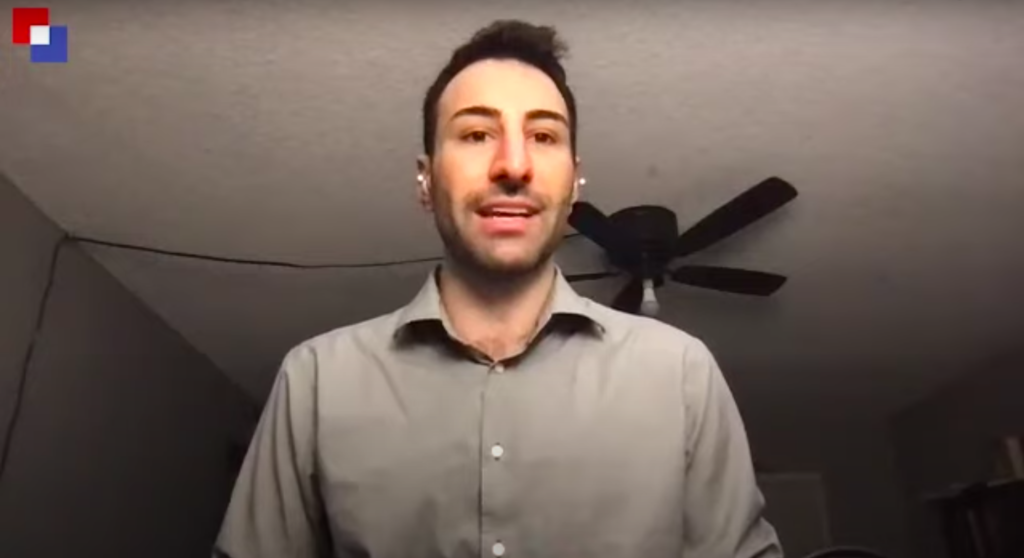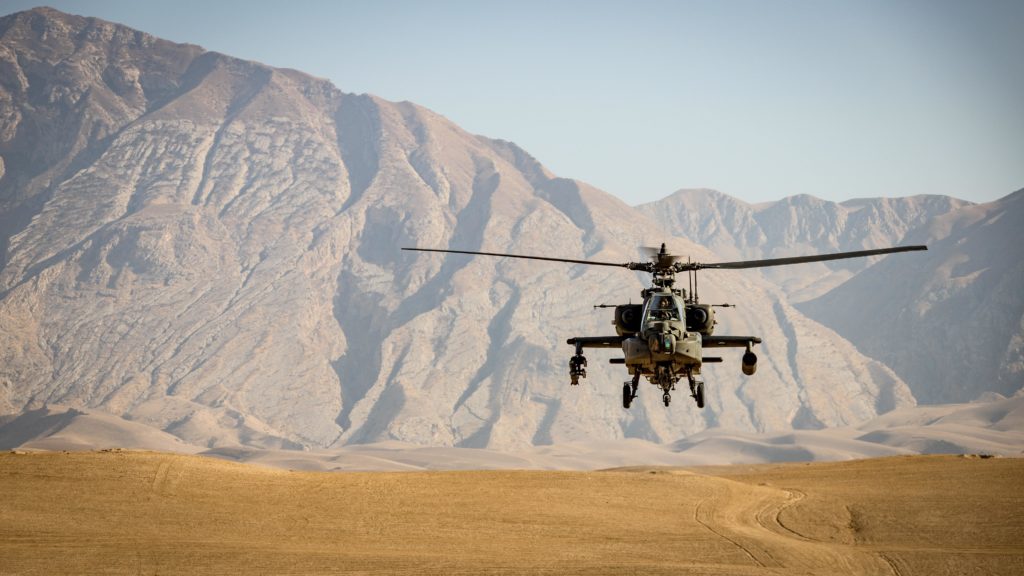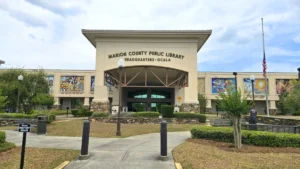What’s Inside
- Speeches on either side of the debate by former service members
- Reflections on what to say to the families of those who have served
- Discussion of what nation-building makes possible
- Questions around the ethics of nation-building, and who is responsible for it
Call our recent debate on America’s interventions abroad “civil,” and it would be an understatement. While all Braver Angels debates encourage respect, at this event participants seemed particularly excited to speak and hear from one another.
This debate was enriched by the presence of former and current U.S. military officials. One of them, Charlotte Clymer, is a writer, communications consultant, and activist who served as a junior enlisted soldier in the U.S. Army from 2005 to 2012. Her experience grounded the discussion in the harsh reality of U.S. military efforts abroad—and led to a question that became central to the debate.

Charlotte recounted a story of a brother-in-arms, Corporal Joseph M. Hernandez, who she described as “the type of young man who would welcome new soldiers and make them feel part of the unit.” When he was killed by an IED in 2009, Hernandez became one of the almost 7,000 American service members killed in Iraq and Afghanistan.
This story led Charlotte to pose a penetrating question: “What I would ask all of you tonight, after you listen to my fellow distinguished panelists, is to wonder how you would talk to the family of the almost 7,000 troops who have died and the hundreds of thousands of civilians and justify what we’ve done over the past 20 years with the military, because I don’t think we can justify it.”

Giselle Donnelly, a fellow veteran and a senior fellow in defense and national security at the American Enterprise Institute, structured her own statement in response to Charlotte’s question.
“One thing I would say to the families of the fallen is that actually the accomplishments of Iraq and Afghanistan were greater than we now appreciate,” she said. “The fact that the Taliban’s Afghanistan … was not, for 20 years after 9/11, the basis or the base of terrorist attacks against the United States is a not insignificant accomplishment.”
Other panelists wrestled with the question of how best to approach nation-building abroad, so that we do not waste the sacrifices of our troops. Matthew King, a former Joseph Rago Memorial Fellow at the Wall Street Journal, got strategic, giving two criteria to judge whether nation-building is in America’s national interest.

“First, to raise costs for our adversaries by supporting nationalist movements within their borders or in countries under their influence,” he said. “And second, to shore up allies and partners that are struggling with national cohesion.”
Others focused on the costs of nation-building. John Allen Gay, executive director of the John Quincy Adams Society, reflected on the moral compromises.
“State-building tends to involve a lot of ugly activity,” said John. “Ask the native populations of the United States, Canada, Australia. In the case of things the United States has done directly, more recently, nation-building and support for regimes abroad involved support for dictators in places like Korea and Taiwan.”
The ethical question had another dimension. Shay Khatiri, a foreign policy columnist who grew up in Iran and is currently seeking political asylum in the U.S., noted that taking control of a country in chaos, only to abandon it without building anything, is immoral. Instead, he offered another solution to the question of nation-building.
“A lot of our state-building projects failed because the military does not know how to do the job of the civilian,” Shay said. “We definitely should invest more in our civilian corps of national security experts.”
Other attendees offered similarly pessimistic assessments of the U.S. military’s capacities. Tyson Chatagnier, an assistant professor of political science at the University of Houston, believes that international organizations could be better agents for nation-building because they “have longer time horizons,” “are responsive to different audiences,” and “have different kinds of training.” These components together make these organizations more able to foster democracy over a long period of time, he said.
While many different opinions were offered, the striking element of this debate was that no opinions stood wildly in opposition. Participants differed, yet their opinions had a great deal of crossover.
“What I was reminded of was how closely-run these questions are. I argued the position I believe in about 50.1%,” Giselle said. “The thing that I enjoyed the most was just the civility and camaraderie amongst the panel. People argued their case with great verve and vigor, but always with civility and respect.”




